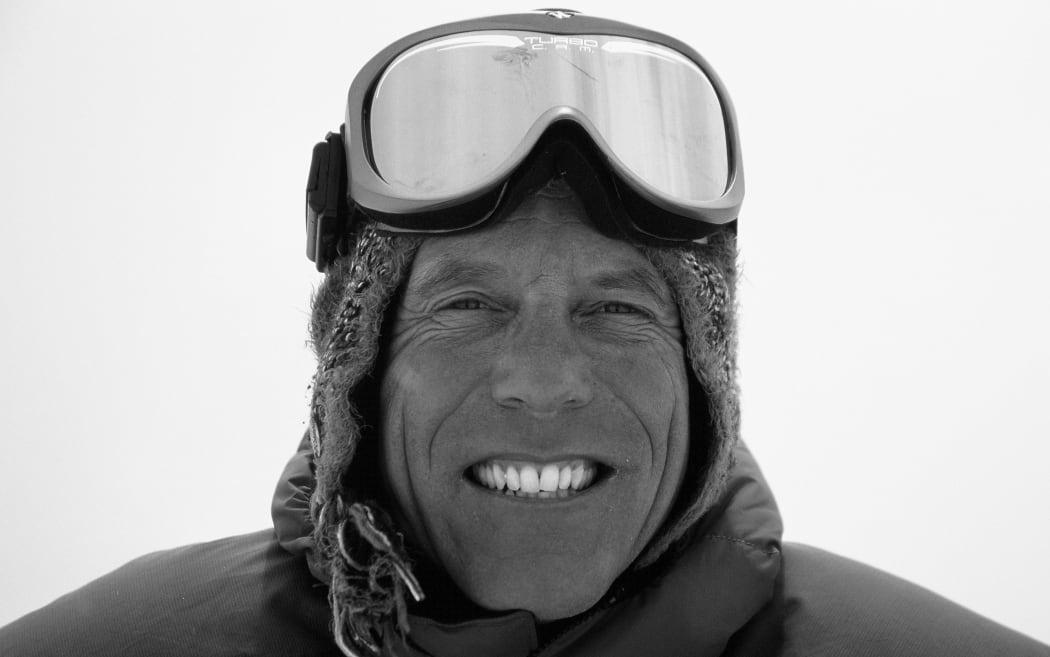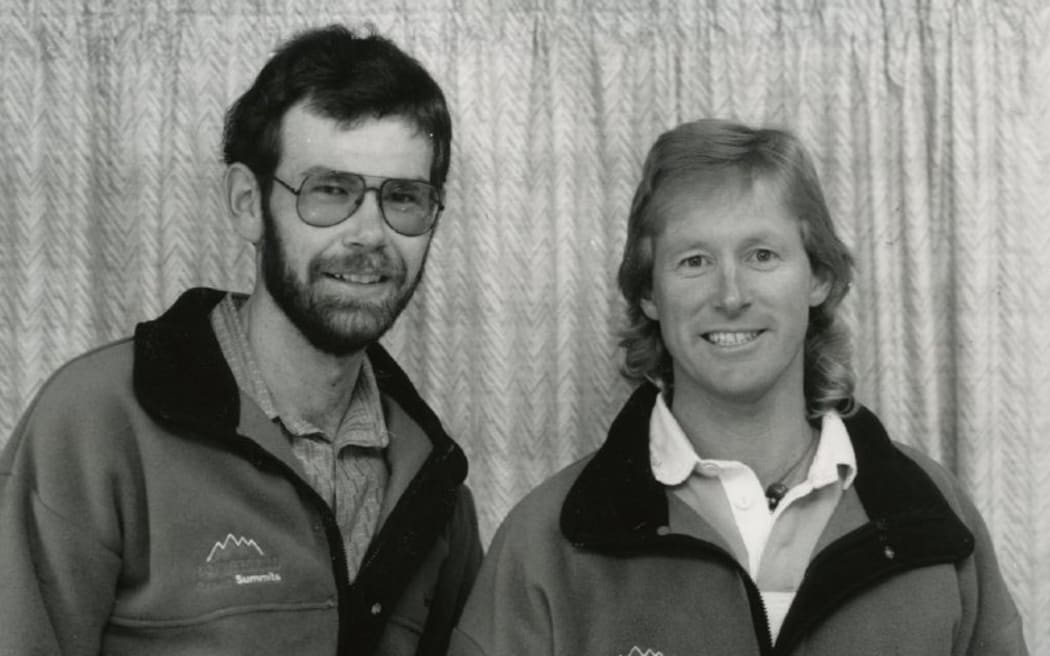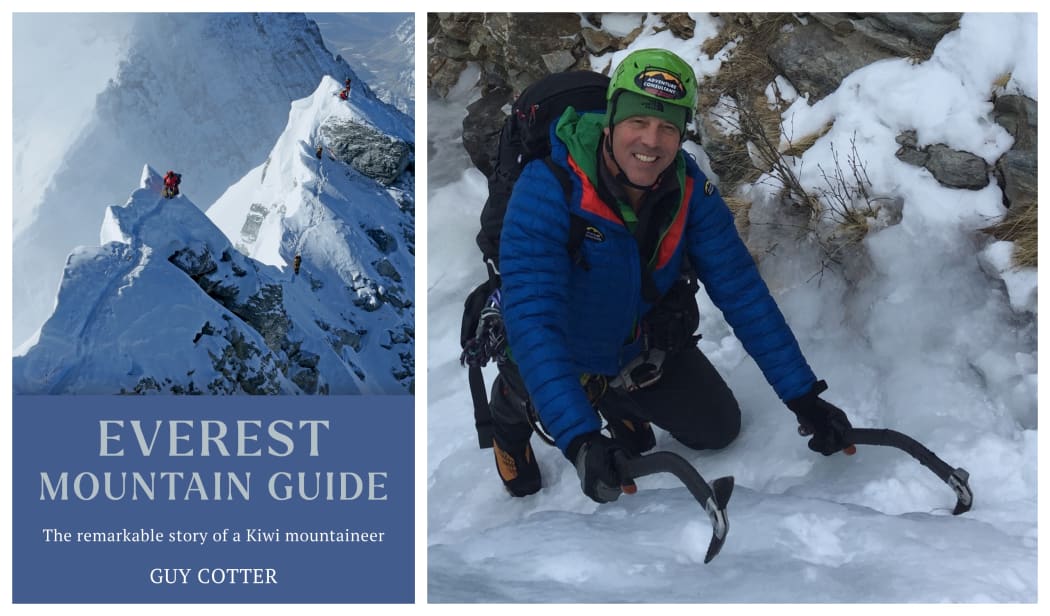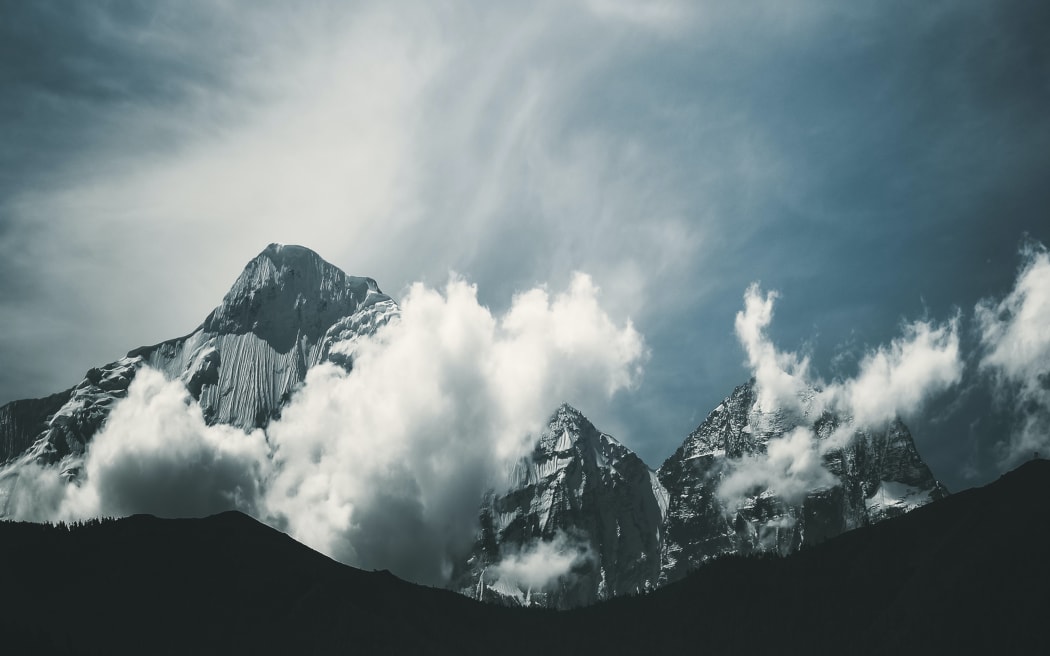New Zealand mountaineer Guy Cotter has summited Mount Everest five times and scaled 7 of the world's 14 above-8000m peaks.
For over 30 years, he has led guided Everest expeditions with Adventure Consultants – a company set up by his mentors Gary Ball and Rob Hall, who died on two separate climbing expeditions in the '90s.
In the new book Everest Mountain Guide, Cotter describes what actually goes on during an Everest expedition and also traces the evolution of high-altitude guided mountaineering.

New Zealand mountaineer Guy Cotter Photo: Supplied
As a "naturally cautious person", Cotter says he was well aware that at any point his body could suddenly hit a "ceiling" the first time he climbed the world's highest mountain
"I was waiting for the onset of high-altitude cerebral oedema where I would lose my mind, throw myself off the side of the mountain sort of thing, but that didn't happen. Luckily, I responded very well to altitude.
"I'd never been above 6,200 metres before so I just didn't really know [how would I go]. Up until [you reach the summit], you're so involved with just the process of putting one step in front of the other and being very careful and just being very conscious of where you are. It was a super exciting time for me."
Cotter made that first trip with his friends and mentors Rob Hall and Gary Ball.
In the early 1990s, when the two men had the "very audacious" idea to start running guided expeditions to Mount Everest, Cotter got tapped on the shoulder to help out.
Hall and Ball had the whole expedition thing "dialled", he says.
"It's very different from just climbing mountains, climbing in the Himalayas, and running expeditions and guiding in that sort of environment is next-level. There are so many more layers to it rather than just putting one foot in front of the other. "
"You can't afford to be vulnerable yourself. You're there for everyone else and therefore you've got to dig a lot deeper to do so."
In 1992, the three men completed the first commercially guided Everest expedition with six clients and four Sherpas.

New Zealand mountaineers Rob Hall and Gary Ball in 1992 Photo: Timaru Herald Photographs
The following year, on a personal expedition to the 8,167m Mount Dhaulagiri, Gary Ball succumbed to pulmonary edoema.
Three years later, Cotter was in the Himalayas climbing the 7,161m Mt Pumori when Rob Hall, a fellow guide and two of his clients died on Mount Everest.
At Everest Base Camp, before Hall and his group embarked, he gave Cotter a radio to keep in touch.
Later, while Cotter and his group were climbing Pumori on what was to be the summit day for Hall's group, one of Cotter's guides who'd been listening to Hall's radio came into his tent to say things weren't going well on Everest.
"I basically listened to an epic unfolding and it was kind of a very difficult position for me to be in because I couldn't physically do anything to help. I wasn't acclimatised enough to even consider going up onto the mountain side just had to listen to all of the events as they unfolded, and then try and offer what advice I could to Rob."
The following day Cotter returned to Everest Base Camp and spent several days there trying to help whilst Rob and others were trapped on the South Summit of the mountain.
"It was a really hard couple of days just watching all this unfold and talking to Rob and not being able to personally get up there and be of help."
Cotter says one of the reasons he didn't write Everest Mountain Guide earlier was his uncertainty about Rob's decision-making on that expedition.
"I had to go through the process of thinking very deeply about this when I decided that I would carry on with Adventure Consultants.
"It was really important for me to be able to say to prospective clients who would be coming on future trips that that we had evolved and that the industry was no longer or had learned a lot from this particular scenario."
What Rob and Gary started with Adventure Consultants was "a brand new enterprise", he says, which often entails some failure.
"In this case, when you're in such a risky environment, [failure] might lead to fatalities, and that's what happened in this case."

Photo: Supplied
As a mountaineering guide, the actual climbing is the easy part, Cotter says.
"It's all about the preparation and setting things up for success that I learned from Rob and Gary and then I expanded upon after I assumed ownership of AC ... Looking after other people in that sort of environment is so much more difficult than when you decide to look after yourself."
What happened on Everest in 1996 led the whole mountaineering industry to "grow up", Cotter says.
"We've transitioned from, if you like, amateur climbing, where everybody's looking after their own selves within a group to this professional guided climbing where you are assuming responsibility, if you like, for the well-being of people in your teams or at least doing your best to ensure that.
"In later years, we added more Sherpa support, we added more oxygen, we made sure we weren't the first team up the mountain each year."
Prior to that, mountaineering teams viewed each other as competitors, he says.
"One of the main things we learned was that when you're actually on the mountain, once you've got all the clients, you're there, you're climbing, you're no longer competing with each other. We all worked out how to support each other on the mountain."
Before the early '90s, a lot of "very, very bad management" went on in the name of Everest adventure, Cotter says.
"The fatality rate has gone from something like 15% of people who summited down to about 1.5% And that is because we've been able to provide a level of management of security, that's what guiding is doing. You're actually making decisions around safety. And you're using very, very, very experienced mountaineers to be making these decisions."
Compared to the 1990s, Everest is now an "incredibly busy" place, Cotter says, with Nepalese tour operators offering cheap expeditions.
Unfortunately, these tend to appeal to people with too little experience who then get into trouble on the mountain, he says.
By contrast, it's expected that clients of Adventure Consultants are well prepared.
"We are showing them the way to do it, how to be safe and so on, but not doing everything for them ... I want people to walk away, having felt like they have climbed the mountain, not that Guy Cotter has them up in the mountain and they were just standing in line behind him."
He tries to set an example of "good style" as an Everest guide.
"I really enjoy the process of being involved with a great team of Sherpas, a great team of guides and a great team of clients where we have a great adventure climbing the world's highest mountain. Yes, there's peril but the accomplishment is significant.
"To me going to Mount Everest, it's like a religion. It's like going to my church, my temple. It's a pilgrimage every time and one that I've always believed deserves the utmost respect."

Photo: Unsplash / Kabita Darlami

